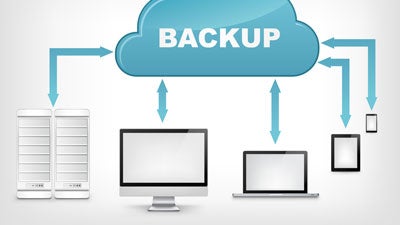Home > Technology > Hardware >
How Data Center Design Affects Your Data Backup Plan
By: Scott Resnick

What’s the most valuable asset your company owns?
If you’re like a lot of businesses, it’s your data. What your business is doing today, what it’s done in the past, where it’s going in the future, and how you’re going to get there – that’s all in your data center. Which is good, right? Everybody is talking about “Big Data” and how it will allow businesses to target customers with more specificity than ever before. But what would happen if all your data disappeared…and your competitors’ data didn’t? Talk about a competitive disadvantage. That’s why data center design is so important.
Many large companies already have formal data recovery plans in place, but smaller companies are often so busy charging forward that they don’t stop long enough to talk about recovery when it comes to laying out their data center. But if you lose everything you know about who your customers are, what they’ve bought in the past, and where you source the things your customers want, you might find that your business comes to a screeching halt.
Related Article: 5 Data Center Design Commandments
The bottom line is, data backup is a critical business function. Otherwise, you may find yourself telling your investors that their money is gone because a squirrel chewed through a cable.
Fortunately, developing and implementing a data backup plan isn’t hard, but there are some things you need to think about.
- What data do you need to back up? The reality is that data storage costs money, so start by prioritizing what needs to be backed up and what doesn’t. Data on customers, employees, and vendors? Definitely. PowerPoint presentations going back five years? Probably not. If you can’t back up everything, back up business-critical data first. If you’re in doubt, though, remember that it costs far less to backup data than to try to conduct your business without it.
- When you’re prioritizing your data, don’t forget data that might be stored in the cloud, on mobile devices, or on personal computers. Unless you have a comprehensive enterprise mobility plan, critical data might be stored in places that wouldn’t be captured by an automatic backup.
- Where will you store the backup? This is one of the more critical decisions you’ll need to make. Should you store it onsite or offsite? Both have advantages and disadvantages. The good thing about onsite storage is easy access. The bad thing is the scenario where the problem isn’t a server crashing—it’s a fire, water leak, or natural disaster that takes out everything at that location. In that case, an onsite backup won’t do you any good at all.
- Offsite backup storage takes advantage of the odds or probability. How likely is it that two remote locations would suffer a disaster at the same time? And note the use of the word “remote:” Storing your backup at a different location in the same area won’t help in a natural disaster. The downside of offsite storage is that you need an internet connection to access it. Many companies solve the dilemma by using both onsite and offsite backups.
- How will you conduct the backups? The next step is to develop your protocol for regular backups: who, when, at what interval, etc. You’ll also need to decide what information to backup. Will you do a complete backup every time, or will you only backup files that changed? The latter method saves time and space, but it can make it difficult to find a particular file. Many companies choose to set up an automatic nightly backup, but, if you go that route, it’s important to have someone verify that the backups are actually taking place.
- How will you test the backup? The last step in your data backup plan is to make sure that it actually works. Having a backup won’t mean much if you can’t use it to restore your data. Try restoring some files on a different computer, preferably in a different location, to make sure the data really is accessible.
When it comes to data center design, developing a data backup plan is key.
Your data is very likely your most valuable business asset, and it will become even more so as your competitors increasingly use their own big data to target customers and tailor their marketing. What is your business’s data backup plan?
This article was originally published by TTI Houston
Published: June 19, 2015
5065 Views
5065 Views














